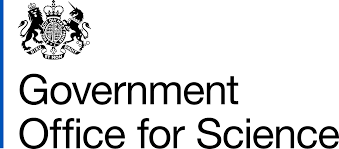PRESS RELEASE : Weak primary schools in Lancashire to become academies [July 2012]
The press release issued by the Department for Education on 12 July 2012.
The government’s Schools Commissioner, Dr Liz Sidwell, will visit a high-performing primary academy in Lancashire on Thursday 12 July – where she will say that weaker schools across the county should aspire to its success.
At a visit to the ‘Outstanding’ Hambleton Primary Academy in Poulton-Le-Fylde, Dr Sidwell will also warn that poor standards of primary education in Lancashire will no longer be tolerated.
She will explain how, by teaming up with education organisations and great schools with track record of success, the government will ensure that poorer-performing schools in Lancashire will improve quickly by becoming academies.
This follows Education Secretary Michael Gove’s pledge last month to increase the pace at which primary underperformance is tackled.
As it stands, test results for 11-year-olds and Ofsted judgements of 36 primaries in the Lancashire remain stubbornly low – resulting in thousands of pupils receiving an unacceptable standard of education, year on year.
Of these 36 primary schools, 32 are below the Government’s ‘floor standard’ for results in key stage 2 tests. This means Lancashire has:
- the highest number of underperforming primary schools in the North West
- around a third of pupils leaving primary school below the standard expected in the 3Rs – reading, writing and maths.
Lancashire’s 32 underperforming schools are in the following constituencies:
Hyndburn – 5
West Lancashire – 4
Burnley – 4
Chorley – 2
Lancaster and Fleetwood – 2
Pendle – 5
Preston – 4
Morecambe and Lunesdale – 3
Rossendale and Darwen – 3
South Ribble – 2
Fylde – 1
Wyre and Preston North – 1
Across the country, underperforming schools have been transformed by becoming academies.
Research published by the department shows that between 2010 and 2011, results for pupils in sponsored academies improved at a faster rate than in other state-funded schools and at a faster rate than in a group of similar schools. The same is the case when looking over a period of five years.
Academies are not controlled by town hall councillors and officials. Instead, they are run by other strong local schools and education groups – like the United Learning Trust. This means that our best school leaders take over the management of our weakest schools, removing them from local authority control under which they have failed to thrive for years.
Schools Commissioner Dr Liz Sidwell said:
All local people want the very best for local schools. But sometimes change is necessary to really bring about the type of improvement needed to give every child the best chance in life. When schools have been struggling for years, we simply cannot stand by and allow things to continue as they are.
That is why we want to turn around number of primary schools in Lancashire. By becoming academies, these primary schools will thrive under the leadership of some of our best school leaders – rather than staying under the control of the local authority, which clearly isn’t working.
As a headteacher who took over failing schools and helped them become academies, I strongly believe this is the best way to raise education standards for children right across Lancashire.
Research published by the department shows that between 2010 and 2011, results for pupils in sponsored academies improved at a faster rate than in other state-funded schools and at a faster rate than in a group of similar schools.
In sponsored academies that had been open for at least five years, results between 2006 and 2011 increased at a faster rate than in other state-funded schools and at a faster rate than in a group of similar schools.
Dr Sidwell is also working with a number of other local authorities to turn around weak schools by helping them to become sponsored academies. Across the country, there are more than one thousand primaries where more than forty per cent of children fail to reach acceptable standards in literacy and numeracy. Around 200 primary schools will have re-opened as sponsored academies by the end of the year.
The best schools and academies are also encouraged to come forward as academy sponsors.



